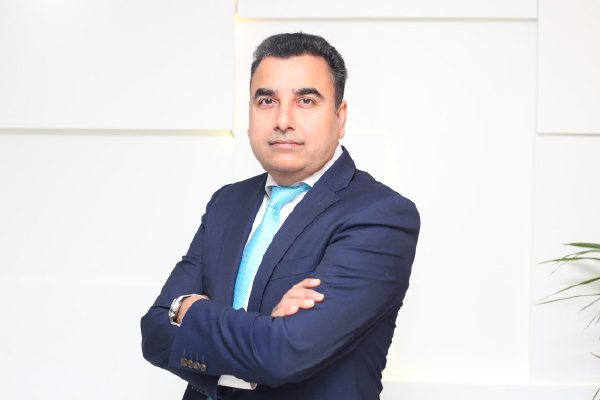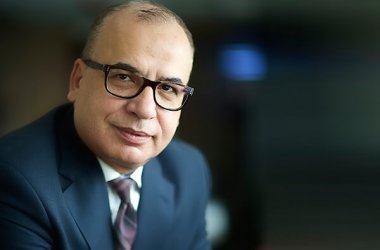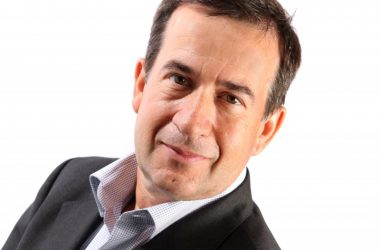Formerly CFO of Dubai International Financial Centre, Rajesh Pareek has recently been named Group CEO of UAE-based travel booking agent Musafir.com. He tells CNME about his plans to progress the firm’s online booking business, and how technology is disrupting the industry.

What are your thoughts on transitioning from working for DIFC to an e-commerce platform?

I’ve spent a lot of time getting an understanding of how this industry works, as well as talking extensively with our CTO. It’s different in many aspects, but beyond having the right technology and platform, everything else in terms of governance, policies and procedures remains the same from one industry to another. However, the business model does change. We have corporate accounts, our online platform and the B2C element where we expect significant growth. We need to look at how we can make a user who visits Musafir.com a long-term customer; how we can engage them. It’s not just service efficiency or how competitive we are; we also have to look at how we can optimise the technology. Our technology platform has to be superior.
How can you convert one-time customers into long-term ones?
It’s an important element, and needs two or three things. Firstly, you have to be very competitive, and by that I mean how people will jump from one company to another if they find a cheaper product. However, our delivery in the post-sales stage is important. For example, if you book a ticket and then want to cancel it, how quickly that can be processed. Providing online visa services when you book a ticket and things like that are also important. We’re looking at other ancillary services that matter to the customer. They might have a one-time engagement, but if the after-sales service is not effective, then that impacts the engagement.
The other element is the features that we provide in our online engagement and on the app. We’ve got a clear roadmap for the next 12 months in terms of which projects we need to complete to ensure we’re not inferior to our competitors, as well as identifying our niche so that we can improvise. If the technology platform is strong enough with smooth features, it makes it extremely effective for that customer to come back.
What is your niche?
We’re a local, homegrown business and a regional player. The company has received investment so that it has grown from being a small travel shop. We provide end-to-end services, including online visa services and holiday bookings. There is a continued intent to invest, and we want to be one of the largest OTA’s in the region. We’re now expanding in Qatar and Saudi, because we believe we can expand quicker than others. We believe we’ll be one of the largest players in the regional marketplace in the coming years.
Is the Middle East finally waking up top e-commerce?
Absolutely. E-commerce is the future. Noon is a great example, and you have solid homegrown companies like Souq.com. It has been flavour of the year over the last two years, and there’s been a lot more activity.
Our conventional model is strong, and that generates profit which can be invested in our e-commerce platform. Our B2C component will be a main focus in the coming years.
Surely that raises the prospect of your physical travel agents being closed in the coming years?
There’s always a risk of that cannibalisation taking place. People move from one to the other, but I don’t see that happening in the near future. When you look at corporate or walk-in customers, there is still a large proportion that won’t log into multiple sites or use search engines. They prefer to go to a desk and make bookings. There’s still time for the conventional business to be taken up online.
What sort of investment will you be making in your technology infrastructure over the coming years?
I can give you a heads up and say we’re setting up an office in Pune in India. We’re in the process of hiring 30 technology staff, which will be increased to 50. We’re doing that to create a technology hub, for people who are purely focused on the platform. We currently have 17 IT staff who sit in our office. Our clear focus is on technology, and we have a roadmap for the next 12 months. This includes our B2C platform, visa services and ticket booking.
Based on your conversations with your CTO, what are the most important aspects of your IT environment?
Projects around payment systems are important. We’re also looking at how the user interface can be made very easy. If a competitor is providing better services than us, we need to look at how we can enhance ours. The idea is to be relevant and competitive across mobile and web usage. IT security is paramount for us. We’re ISO 27001-certified and that’s detailed in terms of our network and security system. We’re doing everything that is required to combat IT security threats.
Will the negative effects of the region’s travel market affect you?
What’s more important for us is the volume of our transactions, not value. Our numbers have increased, while transaction value depends more on what the airline is charging. The average transaction value has reduced, but our volume has increased. If our volumes start dipping, that’s where the concern is.





